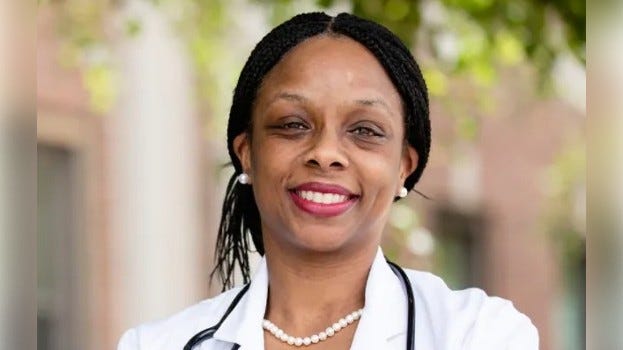
PHILADELPHIA (KYW Newsradio) — A Temple Health doctor says prevention is the key to catch the many health burdens that affect minority communities, and she says the focus of National Minority Health Month this year is education, early detection, action and building awareness.
National Minority Health Month, in April, started in 1915 as National Negro Health Week in response to racial disparities in health care. Tuskegee University founder Booker T. Washington established it as a time to focus on educating Black communities about health care best practices. The goal now is education about health problems affecting all minorities and people of color.
Dr. Delana Wardlaw, a family physician with Temple Health and one-half of the Twin Sister Docs, says many people think about seeing a doctor only when they are ill. However, she says, doctors want to see patients when they are well, too — to prevent any problems from developing even before symptoms begin to show.
“Making sure that we are not missing an elevated blood pressure, or an elevated blood sugar,” she said. “Make sure we are not missing depression symptoms.”
Racial disparities still exist in health care for a myriad of reasons — from lack of access and insurance to a general mistrust of doctors, dating back to the 19th century, when physicians performed painful experimental surgeries on enslaved Africans.
Studies have shown that minorities are less likely than whites to have a primary care physician. Yet, Wardlaw says, minorities carry a disproportionate burden of many health conditions, such as high blood pressure, diabetes and heart disease, so ignoring preventive visits is not recommended, though she knows there may be barriers to accessing proper care.
“Patients may not have access to get to a doctor’s office, or it may have to do with their health, and they don’t have transportation or someone to assist them to the doctor,” she said.
The theme of this year’s National Minority Health Month is “Give Your Community a Boost!” Public health strategy in the U.S. has begun to incorporate booster shots for people who have been vaccinated against COVID-19, depending on factors such as age and risk level, but Wardlaw says there are still some holdouts in minority communities.
Wardlaw says she understands the concerns — “but we don’t want that to stop us from getting a preventable measure that is in place that has been proven to prevent us from developing severe complications and death.”
Her suggestion for anyone who is vaccine-hesitant is to take advice from a trusted medical professional — and not friends. She says cultural competency and sensitivity in medicine is essential to developing that trust.
Patients need to feel comfortable and have some level of trust in their doctors, Wardlaw said. “If you would like to see an African American physician, put that request in. It’s all about having a comfort level to be able to ask questions in order for you to comply with the recommendations that are being made.”
Philadelphia’s Department of Public Health operates health centers where residents can get help applying for affordable health insurance or get services for a small fee based on family size and income.



